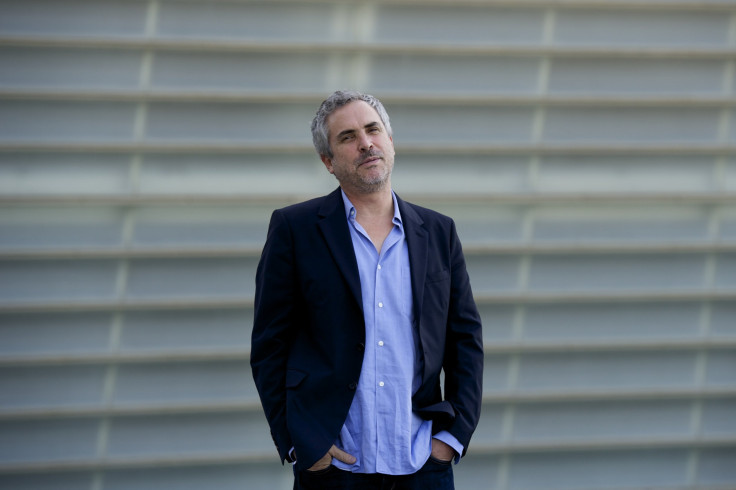
Each year, Time magazine compiles a list of the "100 most influential people in the world." The annual list includes celebrities, politicians, business professionals and icons who lead, challenge, and entertain the world. Five Latinos made the cut for 2014's list: Pope Francis (né Jorge Mario Bergoglio), Venezuelan president Nicolás Maduro, Chilean president Michelle Bachelet, Uruguayan president José Mujica, Mexican filmmaker Alfonso Cuarón, and Withelma "T" Ortiz Walker.
Learn more about the six Latinos that earned a spot on the list:
Pope Francis: The inclusion of the pope should come as no surprise, as the Argentine pontiff has changed how the world views the Catholic Church with his progressive views.
"Pope Francis reminds us in ways that words alone cannot that no matter our station in life, we are bound by moral obligations to one another," wrote U.S. president Barack Obama, who is also on the list, about Francis. "His example challenges us to live out those obligations through work -- to alleviate poverty, reduce inequality and promote peace; to feed the hungry, shelter the homeless, care for the sick and open new doors of opportunity and visions of possibility for everyone. His message of love and inclusion, his regard for “the least of these,” distills the essence of Jesus’ teachings and is a tonic for a cynical age. May we heed his humble example."
Nicolás Maduro: The leader of Venezuela has been making healines for the uprising in Venezuela. The citizens of the South American country started rallying on Feb. 12, 2014, on the 200th anniversary of the Battle of Victoria, to protest Maduro's government after he succeeded Hugo Chavez. The initial protests -- led by the leaders of the Venezuelan opposition María Corina Machado and Leopoldo López -- were followed by a large, city-wide protest.
"Whether it collapses now depends on Maduro -- and on whether he can step out of the shadow of his pugnacious predecessor and compromise with his opponents," writes TIME senior editor Nikhil Kumar.
Michelle Bachelet: The president of Chile, Bachelet has a lot of feathers in her cap: She is the founding executive director of UN Women and she recently won the Chilean presidency for the second time in a row.
"Her governance style is an unusual combination of humanity and solid leadership," wrote Mlambo-Ngcuka, the executive director of UN Women. She is gentle and accessible, yet also strong and determined. As she has said, she is “just another Chilean woman who works, cares for her house and goes to the supermarket.” But she is also “a woman with a calling for social struggle and public service.”
José Mujica: The president of Uruguay has been making international headlines for making the production and sale of marijuana legal in the country.
"It was an important step, a bid to tackle criminal trafficking and regulate the supply of the drug while at the same time set up a new mechanism to help fill government coffers," wrote Meghan McCain, the co-host of Pivot’s "TakePart Live." "It is still early days for the new policy."
Mujica -- a former member of the leftist guerrilla group Tupamaros, who was shot six times and often endured torture during the 14 years he spent in jail --lives a humble life on a small farm with his wife outside of Montevideo, is known for donating most of his salary, and drives to work in a 1987 Voltswagon Beetle.
Alfonso Cuarón: In the recent Academy Awards, Cuarón became the first Latino to win the Academy Award for Best Director for his film "Gravity." His film also won Best Achievement in Visual Effects, Best Achievement in Sound Mixing, Best Achievement in Sound Editing, Best Achievement in Cinematography, and Best Achievement in Editing.
"Like a certain character you may have seen floating alone in space, Alfonso doesn’t have much company in the rarefied air in which he, lucky for us all, lives and creates," writes director J.J. Abrams. "Here’s to his staying in orbit."
Withelma "T" Ortiz Walker: Unlike the other five Latinos, Walker's name may not be as well known. Having lived in the U.S. Foster Care system, Walker was a victim of sex trafficking for seven years. Yet the resilient young woman turned her personal tragedy into a way to make a difference in the world. Last year, she testified in front of the House Committee on Ways and Means' Subcommittee on Human Resources and as such, TIME has appropriately named her "The modern abolitionist."
© 2024 Latin Times. All rights reserved. Do not reproduce without permission.




